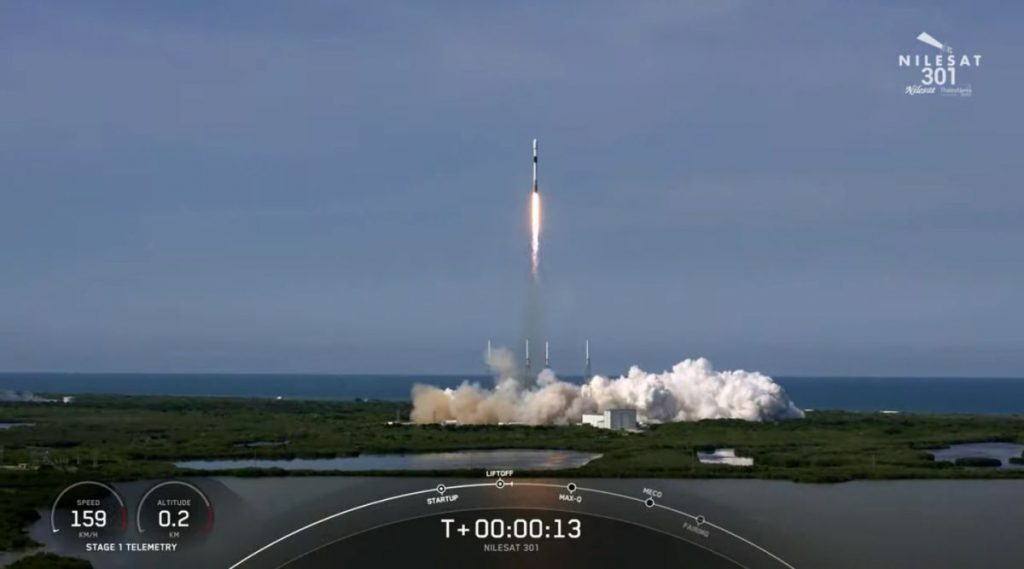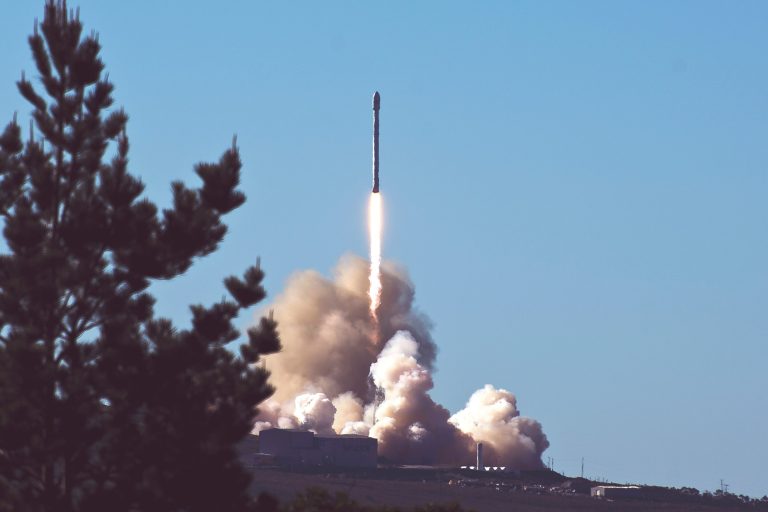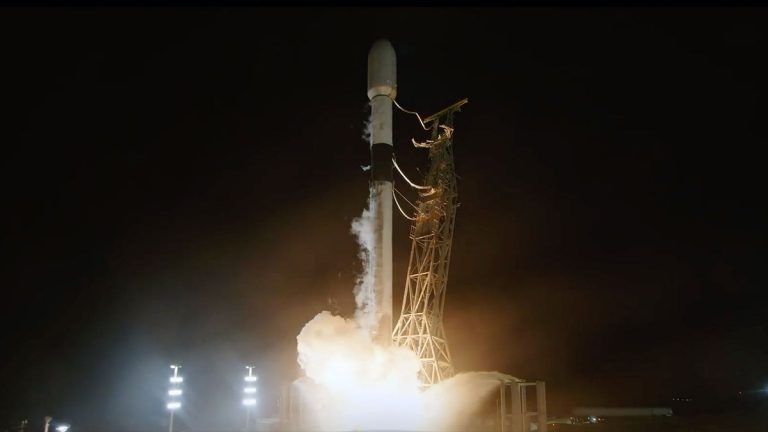
SpaceX launches Egyptian communications satellite, lands rocket on ship at sea (Image Credit: Space.com)
SpaceX launched a communications satellite and landed the returning rocket on a ship at sea on Wednesday (June 8).
A two-stage Falcon 9 rocket carrying Nilesat 301, a satellite that will be operated by the Egyptian company Nilesat, launched from Cape Canaveral Space Force Station in Florida Wednesday at 5:04 p.m. EDT (2104 GMT).
The Falcon 9’s first stage came back to Earth about 8 minutes and 45 seconds after launch, touching down on the SpaceX droneship Just Read the Instructions, which was stationed in the Atlantic Ocean a few hundred miles off the Florida coast.
Related: 8 ways that SpaceX has transformed spaceflight
It was the seventh launch and landing for this Falcon 9 first stage, according to a SpaceX mission description (opens in new tab).
The booster previously helped loft two GPS satellites, two batches of SpaceX’s Starlink internet spacecraft and two private crewed missions — the September 2021 Inspiration4 mission to Earth orbit and Ax-1, which in April became the first all-private astronaut mission to go to the International Space Station.
The Falcon 9’s first stage, meanwhile, continued hauling Nilesat 301 to a geostationary transfer orbit, eventually deploying the satellite there 33 minutes after liftoff. (Nilesat 301 will operate from geostationary orbit, which lies about 22,245 miles, or 35,800 kilometers, above Earth.)
The Nilesat 301 launch continues a very busy stretch for SpaceX; Elon Musk’s company has now launched 23 orbital missions in 2022, and the year isn’t even half-over yet.
Editor’s note: This story was updated at 5:22 p.m. EDT (2122 GMT) with news of successful launch and rocket landing, then again at 5:39 p.m. EDT (2139 GMT) with news of satellite deployment.
Mike Wall is the author of “Out There (opens in new tab)” (Grand Central Publishing, 2018; illustrated by Karl Tate), a book about the search for alien life. Follow him on Twitter @michaeldwall (opens in new tab). Follow us on Twitter @Spacedotcom (opens in new tab) or on Facebook (opens in new tab).








